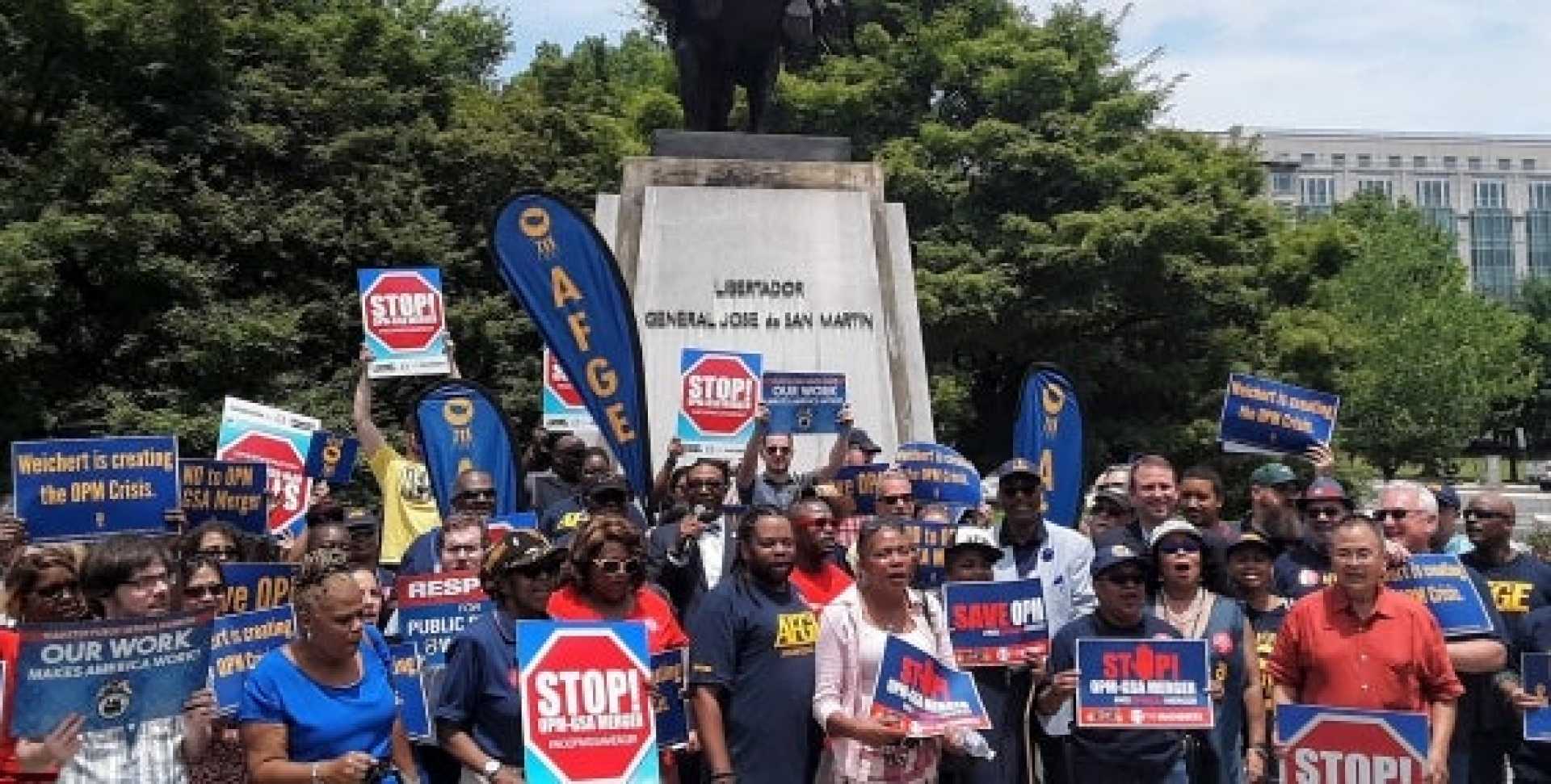News
Federal Workforce Union Gains Members Amid Trump Administration Cuts

WASHINGTON, D.C. — The American Federation of Government Employees (AFGE) is seeing an unprecedented surge in membership as the Trump administration pushes policies aimed at reducing the federal workforce. The union announced on Monday that it has reached its highest membership level ever, standing at nearly 325,000 dues-paying members, with the goal initially set for December 2025.
AFGE President Everett Kelley attributed this growth to increasing awareness and concern among federal employees regarding the administration’s actions. “It says to me, not only are federal employees paying attention, but the entire country is paying attention to what’s going on… and they do not appreciate the attacks on federal workers,” Kelley said during AFGE’s legislative conference.
In 2025, AFGE has seen a dramatic increase in new member requests, reporting a net gain of 8,000 members in January alone, and an additional 8,200 in February. Kelley indicated that 750 new bargaining units have requested representation from AFGE, with at least 150 units demonstrating strong interest in joining.
As the Trump administration aims to downsize the federal workforce, Kelley emphasized the importance of following legal protocols while managing employee headcounts. “If this administration wants to say there are too many people working for the federal government, they should follow the directives and the policies, and they should bargain with unions,” Kelley stated.
Daniel Horowitz, AFGE’s Acting Legislative Director, noted that the union is opposed to the administration’s downsizing initiatives and emphasized the need for more personnel in agencies like the Department of Veterans Affairs (VA), which he claims requires tens of thousands more employees. “We don’t support downsizing,” Horowitz added.
The Trump administration has hinted at potential nonvoluntary reductions in force (RIF) if agencies fail to meet specific employee reduction targets. Horowitz pointed out that this could disrupt existing workflows as agencies attempt to fulfill their missions while facing cuts.
Concerns have also been raised regarding teleworking employees, as the administration pushes for a full return to office work. Kelley revealed that some agencies lack the necessary space to accommodate all employees, narrating instances where members have been forced to work in closets due to overcrowding. “In most instances, they have negotiated with the union to have telework,” Kelley remarked.
Kelley’s statements highlight AFGE’s commitment to filing grievances and lawsuits if the administration fails to ensure safe working conditions that align with union contracts. Sharia Smith, president of AFGE Council 252, noted specific problems in the Education Department, where many employees are uncertain about their return-to-office logistics.
With the Trump administration’s calls for headcount reductions, the impact on federal agencies remains uncertain. Critics argue that these sweeping changes could hinder the efficiency of government operations and adversely affect federal employees.












